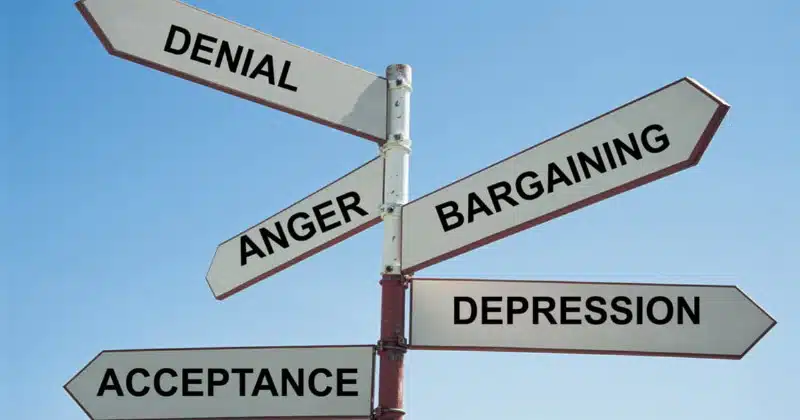
Denial isn’t something we move past just once. It revisits us.
When someone we love is diagnosed with dementia or Alzheimer’s, denial often shows up first, not because we’re ignoring the truth, but because our hearts are trying to protect us. It’s a form of self-preservation. Our brains and hearts need time to catch up. This is true of any diganosed disease or illness.
We may say, “Maybe it’s just aging,” or “They’ve always forgotten things,” and that’s okay. In fact, it’s normal. Here’s the part we don’t always talk about: denial doesn’t disappear. It evolves.
Even after we’ve come to accept the diagnosis, denial can sneak back in softly, quietly each time our loved one changes in a new way. It’s not always dramatic. Sometimes it’s something as small as a plate.
Recently, Doug stopped putting the dishes away. He still washes them, still dries them. Then he lines them up on the counter instead of placing them in the cupboard. I felt irritated at first, “Why won’t he just finish the task”? It’s right there… And then I realized, he can’t. He no longer knows where the dishes go. He doesn’t open cabinets to check. That part of the sequence is gone. Signs the disease progressing.
Grief, too, is not a single event. It will WAIT for you. It’s layered. Ongoing.
Sometimes invisible to others. You grieve the changes in real time. You grieve what’s been lost and what might never come. And when no one else seems to see what you’re holding; it can feel isolating.
That’s why acknowledging both denial and grief again and again isn’t just important. It’s essential. Not just for care partners but for friends, family, and community.
Because these emotions aren’t signs of weakness. They are evidence of love.
They are signposts that something important is shifting.
And they invite us to pause, reflect, and re-orient ourselves on this winding road we never asked to walk but are walking anyway.




No comments! Be the first commenter?